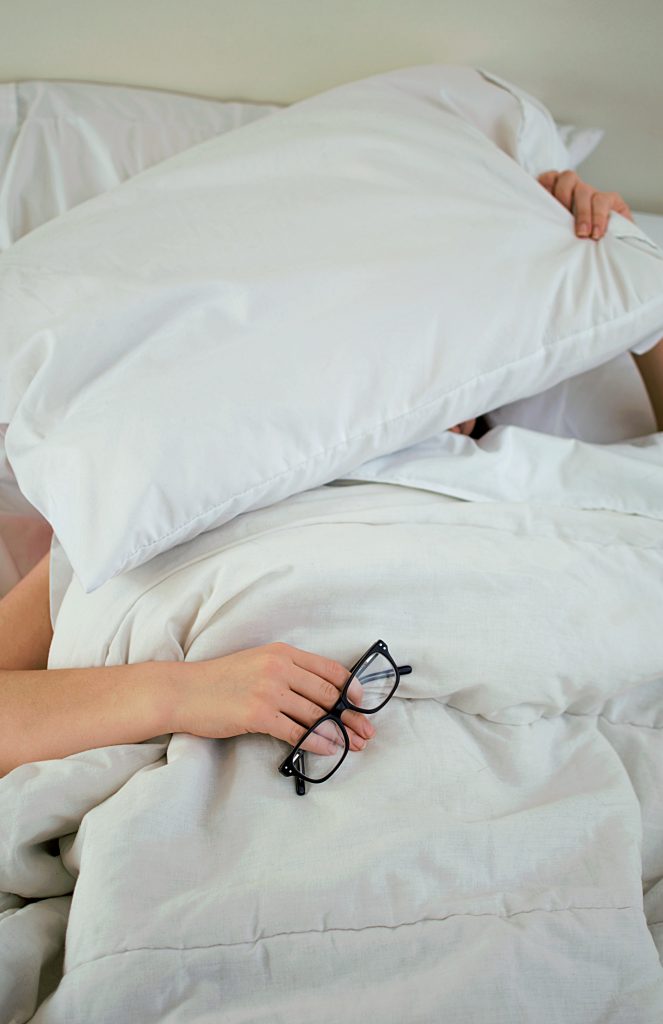Healthy Sleep
We all need to deve
What Is Sleep?
In the past, sleep was considered just a block of time when you are not awake. Thanks to sleep studies done over the past several decades, it is now known that sleep has distinctive stages that cycle throughout the night. Your brain stays active throughout sleep, but different things happen during each stage. For instance, certain stages of sleep are needed for us to feel well rested and energetic the next day, and other stages help us learn or make memories.
There are a number of vital tasks that are carried out during sleep which help maintain good health and enable people to function at their best. Not getting enough sleep can be dangerous. For example, you are more likely to be in a car crash if you drive when you are drowsy.
How Much Sleep Is Enough?
Sleep needs vary and they change throughout the life cycle. Infants sleep between 16-18 hours a day. Children in preschool sleep between 9-12 hours a day. According to the Centers for Disease Control and Prevention, children ages 6-12 require 9- 12 hours of sleep and teens ages 13-18 need 8-10 hours of sleep per 24 hour period. Most adults need approximately 7 – 8 hours of sleep.
Some people believe that adults need less sleep as they get older. But there is no evidence to show that older people can get by with less sleep than younger people.
As people age; however, they often get less sleep or they tend to spend less time in the deep, restful stages of sleep. Older people are also more easily awakened.
Why Sleep Is Good For You – And Skimping On It Isn’t
Does it really matter if you get enough sleep? Absolutely! Not only does the quantity of your sleep matter, but the quality of your sleep is important as well. People whose sleep is interrupted a lot or is cut short might not get enough of certain stages of sleep. In other words, how well rested you are and how well your function the next day depend on your total sleep time and how much of the various stages of sleep you get each night.
Performance
We need sleep to think clearly, react quickly, and create memories. In the article, Sleep Learning, and Memory, Dr. Robert Stickgold talks about how sleeps impacts memory before and after learning a new skill. In fact, the pathways in the brain that help us learn and remember are very active when we sleep. Studies show that people who are taught mentally challenging tasks do better after a good night’s sleep. Other research suggests that sleep is needed for creative problem solving.
Skimping On Sleep Has A Price
Cutting back on even 1 hour can make it tough to focus the next day and can slow your response time. Studies also find that when you lack sleep, your are more likely to make bad decisions and take more risks. This can result in lower performance on the job or in school.
Mood
Sleep also affect mood. Insufficient sleep can make you irritable and is linked to poor behavior and trouble with relationships, especially among children and teens. People who chronically lack sleep are also more likely to become depressed.
Health
Sleep is also important for good health. Studies show that not getting enough sleep or getting poor quality sleep on a regular basis increases the risk of having high blood pressure, heart disease, and other medical conditions.
In addition, during sleep, your body produces valuable hormones. Deep sleep triggers more release of growth hormone, which fuels growth in children, and helps build muscle mass and repair cells and tissues in children and adults. Another type of hormone that increases during sleep works to fight various infections.
This might explain why a good night’s sleep helps keep you from getting sick – and helps you recover when you do get sick. Hormones released during sleep also affect how the body uses energy. Studies find that the less people sleep, the more likely they are to be overweight or obese, to develop diabetes, and to prefer eating food that are high in calories and carbohydrates.
As you can see, there are numerous performance, mood, and health reasons to focus on sleep. We all need to develop healthy sleeping patterns.
The information in this article is adapted and updated under license from Claire Communications.





